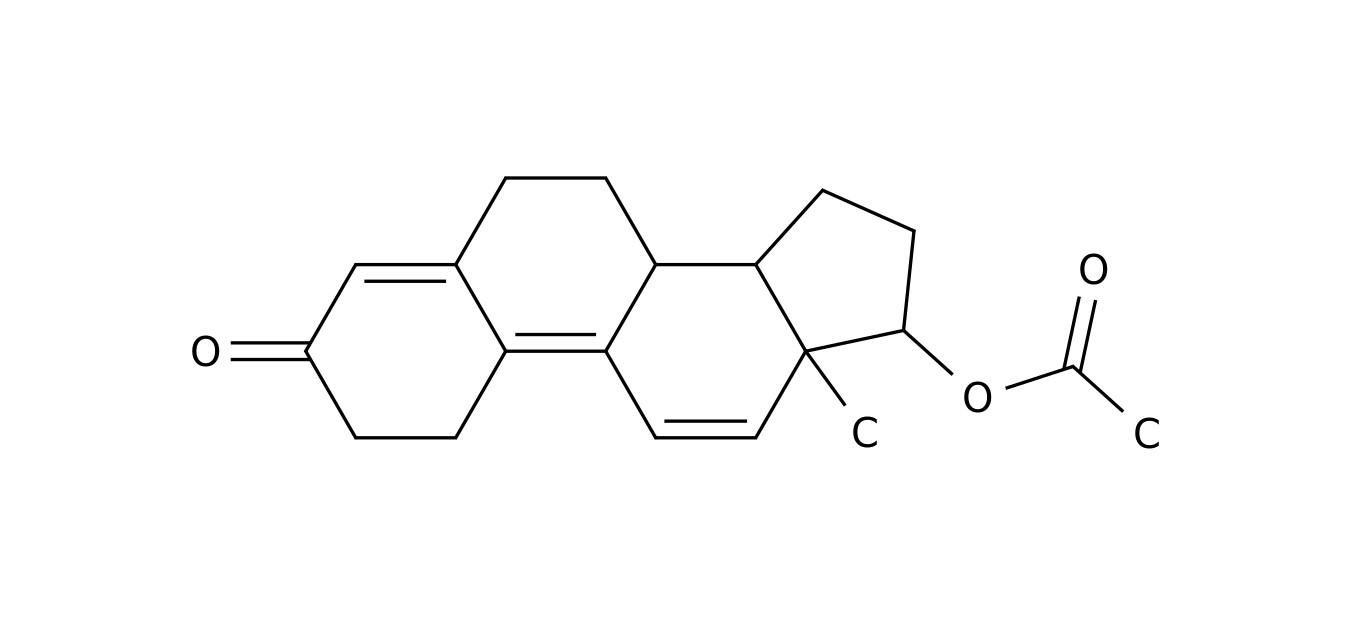The Truth about Trenbolone

Trenbolone acetate is a popular ester pro-drug of trenbolone, a synthetic anabolic steroid that's estimated to be three to five times more potent than testosterone at the androgen receptor. Since the body does not metabolize trenbolone to dihydrotestosterone (DHT) like other anabolic steroids (e.g. testosterone) it is an appealing performance-enhancing drug (PED) in bodybuilding subculture.
However, using trenbolone acetate to build lean muscle mass and increase strength still carries a high risk of side effects. Adverse reactions are all but assured on a trenbolone cycle due to the relatively large doses prescribed by "steroid gurus" and "bodybuilding coaches" on Internet forums.
But the positive effects of anabolic steroid use are irrefutable, and trenbolone (acetate and enanthate) remains one of the most powerful performance-enhancing drugs for muscle growth. What's interesting about trenbolone is that it's classified as a selective-androgen receptor modulator (SARM), albeit steroidal, due to its tissue-specific actions and lack of 5-alpha reductase (5-AR) activity.
This guide will quickly bring you up to speed on tren use, how it increases lean muscle tissue, and the side effects you should be aware of before taking anabolic agents. Disclaimer: The contents of this article are for informational purposes only. Trenbolone acetate and other forms of trenbolone are schedule III controlled substances in the United States. Possessing, using, or distributing these substances may lead to serious legal consequences. Trenbolone use will also cause you to fail a drug test in most sporting organizations.
Trenbolone acetate and other tren esters are clinically intriguing because of their lesser androgenic and greater anabolic activity than testosterone esters, like testosterone propionate and cypionate. Testosterone is metabolized to DHT and estradiol by 5-AR and aromatase enzymes, respectively. Therefore, using testosterone can lead to hair loss/premature balding, gynecomastia (male breasts), prostate growth, oily skin/acne, and other androgenic side effects.
While trenbolone is not as androgenic or estrogenic as testosterone, it can still produce severe side effects in high doses. Research has shown that environmental exposure to trenbolone increases the production of amyloid-beta plaques in the brain, indicating the progression of Alzheimer's disease and cognitive decline. Other evidence suggests that trenbolone use increases the risk of prostate cancer through pathways downstream the androgen receptor. There are also concerning case studies of individuals taking trenbolone acetate and other anabolic androgenic steroids experiencing psychotic symptoms.
- Art
- Causes
- Crafts
- Dance
- Drinks
- Film
- Fitness
- Food
- Jocuri
- Gardening
- Health
- Home
- Literature
- Music
- Networking
- Alte
- Party
- Religion
- Shopping
- Sports
- Theater
- Wellness
- IT, Cloud, Software and Technology


